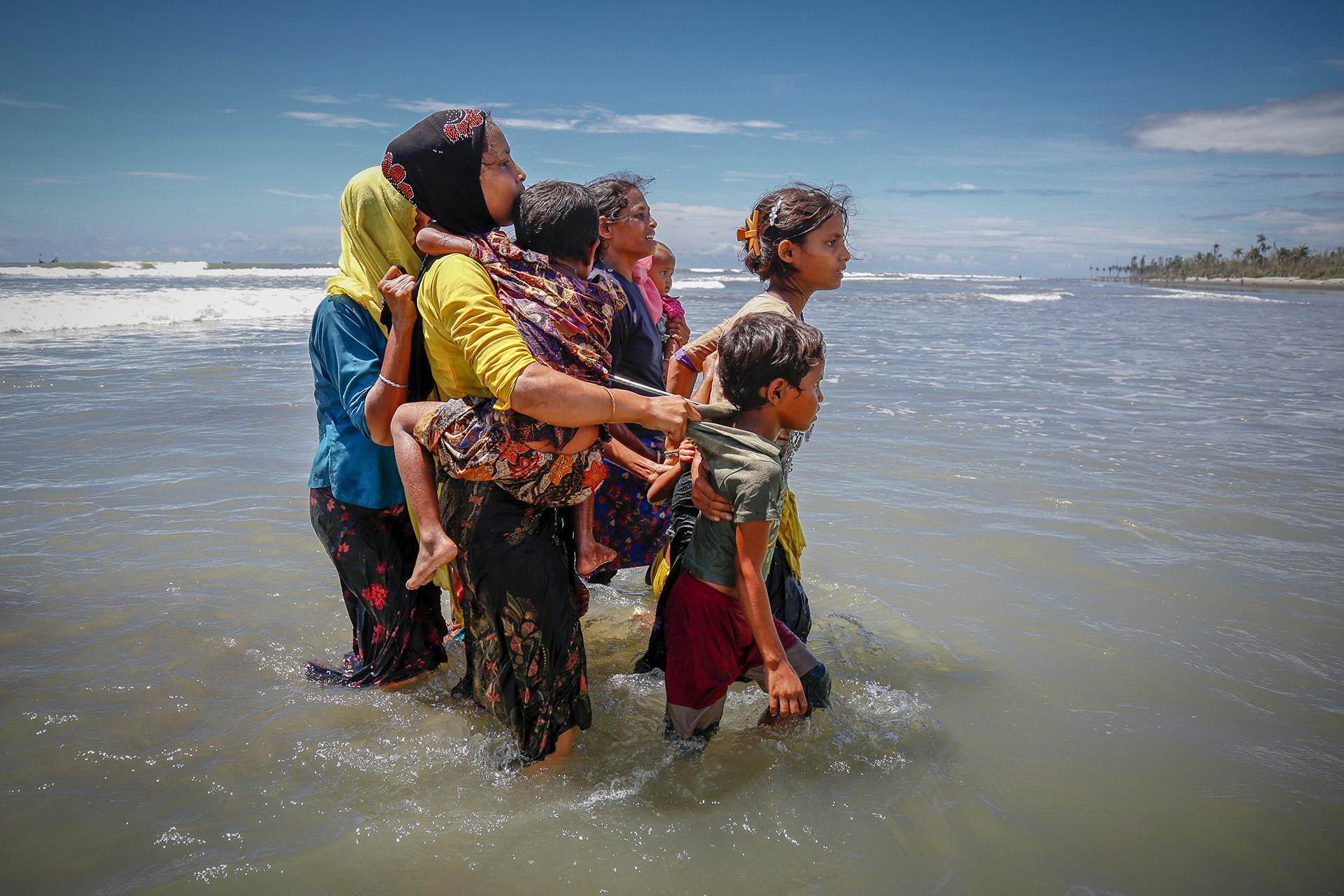
InterAction Members Highlight Rohingya Pledge at Global Refugee Forum
The first Global Refugee Forum (GRF) was held in 2019 where stakeholders announced pledges toward the Global Compact on Refugees. The second GRF will be held in Geneva from December 13 to 15, 2023, and will offer an opportunity to reflect on progress and renew commitments, including to ease pressures on host countries.
Out of 1,400 pledges announced at the inaugural event in 2019, only 7% focused on the Asia-Pacific despite the large population of Rohingya refugees living throughout the region. The upcoming GRF will be an opportunity to give due attention to the Rohingya situation.
More than 1 million Rohingya refugees are living in Bangladesh, India, Indonesia, Malaysia, and Thailand. Despite the crisis being in its seventh year, a regional response mechanism and sustainable solutions are still lacking. One multistakeholder pledge at the 2023 GRF is “Expanded Solutions and Enhanced Resilience: A Multi-Stakeholder Pledge for Rohingya Refugees.” This pledge presents a distinctive chance to highlight the plight of Rohingya refugees, emphasize the necessity of solutions, maintain assistance provided by host countries, and garner the commitment of states beyond the region for increased resettlement and other complementary pathways. Rohingya communities and their needs must be at the center of these solutions.
Amidst competing global priorities and decreased humanitarian funding, InterAction would like to highlight the Rohingya Pledge during the Global Refugee Forum and offer suggestions for its strengthening.
Recommendations:
- Regional governments must sign on to the pledge including transit countries like Indonesia, Thailand, Malaysia, and India.
- Countries hosting the majority of the world’s refugees have started forcibly returning or expelling refugees as a direct consequence of a lack of support from the international community. U.N. member states should thus send a collective signal of international solidarity and responsibility sharing by creating a joint framework on third-country resettlement and complementary pathways, setting yearly benchmarks with the goal of resettling Rohingya refugees.
- The U.N. should encourage member states to prioritize countries of asylum in line with UNHCR’s global needs assessments and in line with the submission of resettlement categories, which put the Rohingya communities at a high level of protection needs.
- U.N. member states should support host countries, particularly the Government of Bangladesh, in building climate-resilient infrastructures, including shelters and water and sanitation systems, to ensure the protection of Rohingya refugees and host communities against climate change.
- Stakeholders should pilot and expand programs with the support of the international donor community as complementary pathways, such as refugee passports, private and community sponsorship programs for resettlement, higher education programs, and employment programs matching qualified refugees with jobs.
- All regional governments must cease the practice of turning away distressed Rohingya asylum seekers at sea, particularly when considering that since January 2023, 3,400 Rohingya refugees have embarked on sea journeys, up 360% from the year before. Additionally, at least 348 people died or went missing at sea this year.
- Stronger measures, including a coordinated regional approach through mechanisms such as the Bali Process, are critical to protect the many Rohingya who risk their lives at sea.
Beyond the Global Refugee Forum Recommendations
While the pledge focuses on the regional response, Rohingya communities continue to suffer from systemic discrimination and a lack of protection mechanisms in Myanmar, including access to legal status. Discussions around the Rohingya Pledge must also include the conditions inside Myanmar, where almost 150,000 Rohingya people remain internally displaced. Future Rohingya Pledges should be broadened to include conditions inside Myanmar.
Myanmar’s Humanitarian Response Plan (HRP) is only 28% funded, one of the lowest in the world. Despite limited funding, severe access challenges, and security risks, NGOs have found creative ways to support Rohingya communities using available access and in coordination with local aid groups and community-based networks. Donors have a central role in ensuring humanitarian assistance reaches those most in need by providing robust and flexible funding to all partners, especially refugee-led and women-led organizations where possible.
Efforts must focus on the root causes of Rohingya displacement, such as lack of freedom, lack of citizenship, systematic discrimination, and deteriorating living conditions. Internally displaced persons (IDP) camp closures and relocations in Rakhine State should be reviewed and collective efforts should be redoubled to implement the Rakhine Advisory Commission’s recommendations. It should be emphasized that the closure of an IDP camp should only be the result of meaningful community consultation and offer sustainable solutions for those displaced that allow them to resume lives free of dependency.
While refugees have consistently expressed the desire to return to Myanmar once conditions allow, third-country resettlement and complementary pathways should be explored for Rohingya refugees, as prospects for repatriation or formal integration are currently limited. Ensuring the right to education and to work in host countries provides pathways to enhanced protection and resilience. Sustainable and market-linked livelihood programs are essential to empower refugees and mitigate the adverse impacts of decreased humanitarian aid.
Finally, a commitment to ensure inclusive and meaningful participation of the Rohingya community in decision-making processes, including for repatriation, resettlement, and complementary pathways, must be the priority. To this end, timely and clear information must be shared with the Rohingya community and their perspectives fully considered in all discussions related to their future.








